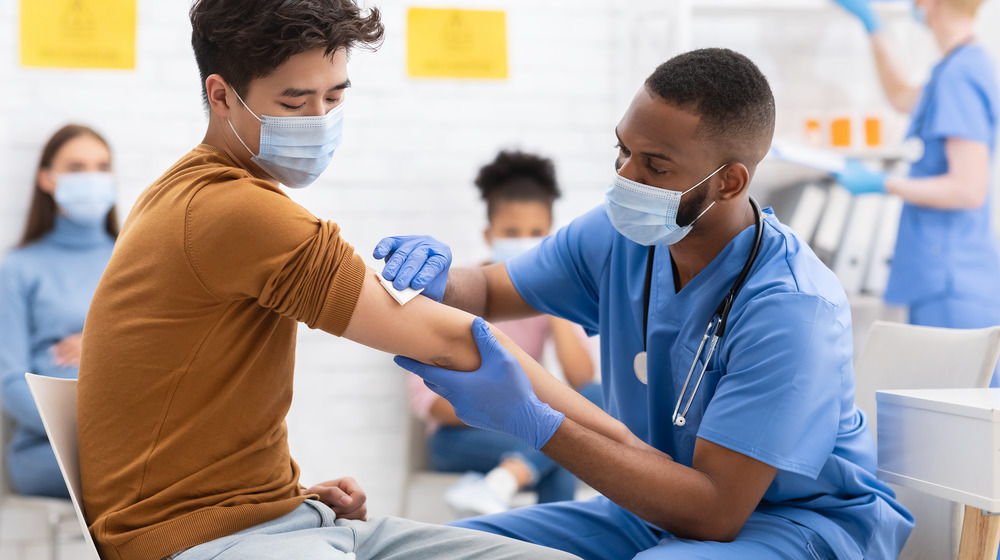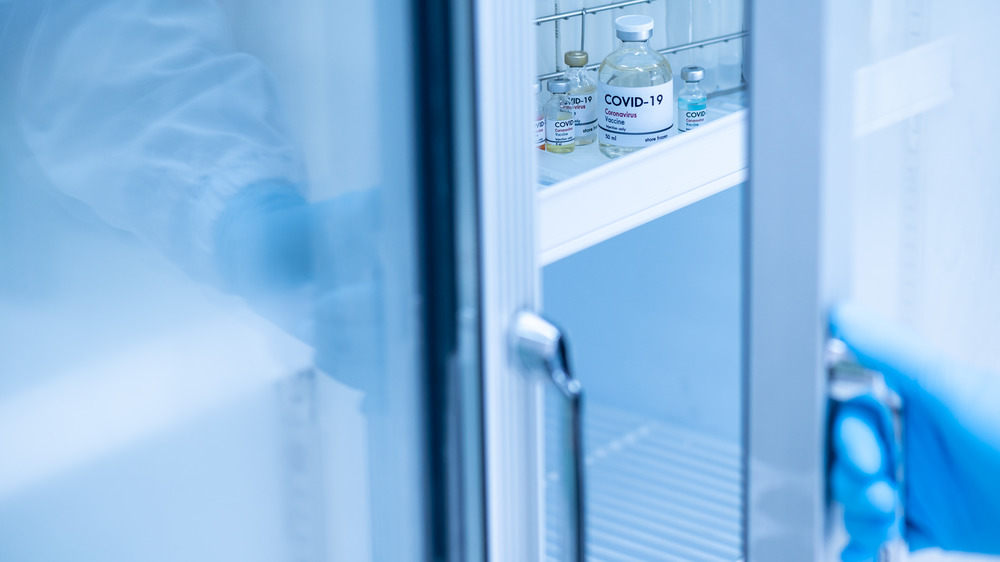How Your Location Can Determine Which COVID-19 Vaccine You Get
The current distribution of the new COVID-19 vaccine has many wondering not only when they will be available, but also if there will be a choice between Moderna or Pfizer. Vaccinations began last month after the FDA issued an emergency use authorization, and since then, both the Pfizer and Moderna vaccines have only been distributed to about 17 million Americans (via CDC). According to USA Today, 70 percent of the these millions of doses have not even left the pharmacies, and distribution levels are currently not even close to the 1 million doses a day experts want to see.
As the rollout continues, it appears your location may have an impact on which vaccine you will get. According to Healthline, the storage process of Pfizer's vaccine, which must be kept at -112 to -76 Fahrenheit (via CDC), requires special freezers that are not easily available in all areas. According to Business Insider, Pfizers vaccine can only be stored at larger facilities that are properly equipped to do so. California State Senator, Dr. Richard Pan, told Business Insider that Modernas vaccine will be more "available in clinics and pharmacies" because it does not need to be stored at those super low temperatures.
COVID-19 vaccine distribution and storage
Doctor Rob Davidson of Michigan told Healthline that Moderna can deliver their vaccine in much smaller increments than Pfizer can, making it easier to store in more rural areas, stating, "I can buy 100 dose allotments versus 975 dose allotment for Pfizer." Davidson goes on to say that he received the Moderna vaccine from his small hospital, while his wife, who works in a much larger hospital, received the Pfizer vaccine. The way the vaccines require storage might just determine which vaccine you get.
Furthermore, Business Insider reports that immunologist Dr. Anthony Fauci thinks the side effects of each individual vaccine may also have an impact on who the vaccines are given to. Fauci states, "There may be one vaccine that seems to work better in the elderly than in the young, and one may work better in children than it works in the elderly. When you learn that, and it will take some time to learn that, you may have more of a selective distribution, depending on the demographic group."


